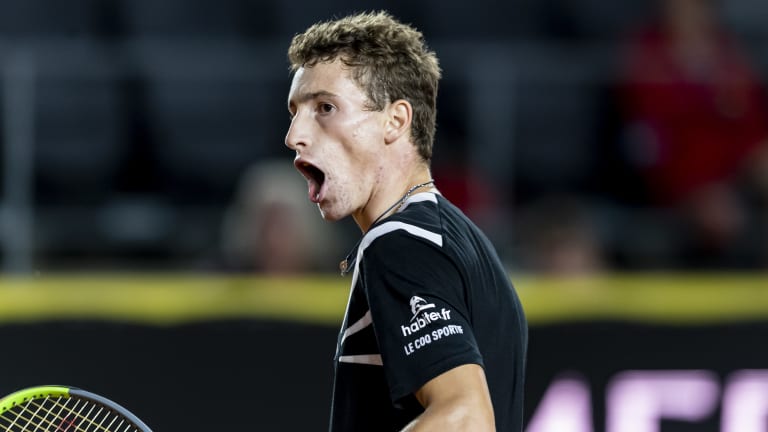ATP Paris, France
In any other year, Humbert's win over Tsitsipas would've been a moment
By Nov 04, 2020ATP Paris, France
Novak Djokovic 'very proud' to win record-extending seventh title at Rolex Paris Masters
By Nov 05, 2023ATP Paris, France
Untouchable Novak Djokovic downs Grigor Dimitrov in straight sets for record-extending seventh title at Paris Masters
By Nov 05, 2023ATP Paris, France
Setting Up Sunday: ATP Rolex Paris Masters features a surprise guest and a familiar face
By Nov 04, 2023ATP Paris, France
Novak Djokovic wins a three-set battle with Andrey Rublev to set up Paris Masters final against Grigor Dimitrov
Nov 04, 2023ATP Paris, France
Grigor Dimitrov reaches first ATP Masters 1000 final in six years in Paris
By Nov 04, 2023ATP Paris, France
With Andrey Rublev's Paris win, Alexander Zverev and Holger Rune complete ATP Finals field
By Nov 04, 2023ATP Paris, France
Grigor Dimitrov beats Hubert Hurkacz to reach Paris Masters semifinals for second time
By Nov 03, 2023ATP Paris, France
Novak Djokovic survives Tallon Griekspoor onslaught at Rolex Paris Masters
By Nov 02, 2023ATP Paris, France
Jannik Sinner withdraws from Paris Masters and slams organizers for lack of rest after early-morning finish
By Nov 02, 2023ATP Paris, France
In any other year, Humbert's win over Tsitsipas would've been a moment
On the silence of Bercy, and the potential rise of a new French player.
Published Nov 04, 2020
Advertising

In any other year, Humbert's win over Tsitsipas would've been a moment
© Getty Images for matchmaker